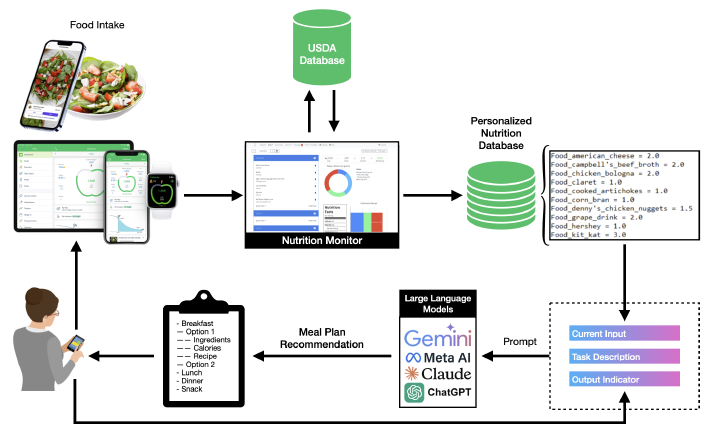NutriGen: Personalized Meal Plan Generator Leveraging Large Language Models to Enhance Dietary and Nutritional Adherence

Abstract
Maintaining a balanced diet is essential for overall health, yet many individuals struggle with meal planning due to nutritional complexity, time constraints, and lack of dietary knowledge. Personalized food recommendations can help address these challenges by tailoring meal plans to individual preferences, habits, and dietary restrictions. However, existing dietary recommendation systems often lack adaptability, fail to consider real-world constraints such as food ingredient availability, and require extensive user input, making them impractical for sustainable and scalable daily use. To address these limitations, we introduce NutriGen, a framework based on large language models (LLM) designed to generate personalized meal plans that align with user-defined dietary preferences and constraints. By building a personalized nutrition database and leveraging prompt engineering, our approach enables LLMs to incorporate reliable nutritional references like the USDA nutrition database while maintaining flexibility and ease of use. We demonstrate that LLMs have strong potential to generate accurate and user-friendly food recommendations, addressing key limitations in existing dietary recommendation systems by providing structured, practical, and scalable meal plans. Our evaluation shows that Llama 3.1 8B and GPT-3.5 Turbo achieve the lowest percentage errors of 1.55% and 3.6%, respectively, producing meal plans that closely align with user-defined caloric targets while minimizing deviation and improving precision. Additionally, we compared the performance of DeepSeek V3 against several established models to evaluate its potential in personalized nutrition planning.